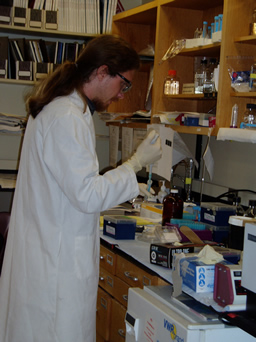Application to the Program & Selection of Trainees
Application Information
Prospective trainees with baccalaureate degrees who meet the requirements of the graduate school and the participating departments and who have been accepted to the graduate program at Boston University School of Medicine are considered for acceptance into the pre-doctoral program.
Application information and forms are available through Graduate Medical Sciences:
(http://www.bumc.bu.edu/gms/).
Any further inquires can be addressed to the Program Director (kravid@bu.edu).
Selection of Trainees
Candidates include students accepted to Ph.D. programs in Biochemistry, Genetics and Genomics, Pharmacology, Physiology and Biophysics, Cell and Molecular Biology, Molecular Medicine, and M.D./Ph.D. students enrolled at Boston University. The Training Program Executive Committee and the participating faculty recommends to the Program Director the students to be supported by the training grant. These nominations occur prior to matriculation for students entering the Ph.D. program, during the first year of study after the student has identified a mentor for the second year, and during the second year of medical training for the students in the M.D./Ph.D. program.
Training grant support is only allocated to applicants who are U.S. citizens or permanent residents. Minority applicants are identified and given careful consideration.
The criteria for selecting a student to participate in the training program are:
I. A strong academic record, including grade point average, standardized test scores, letters of recommendation, previous research experience and a positive interview.
II. A keen interest in study of cardiovascular biology at the molecular or integrative level, and desire to capitalize on the resources of the interdisciplinary components of the program.

A trainee pursuing research related to proteomic approaches to the study of oxidative stress and vascular disease